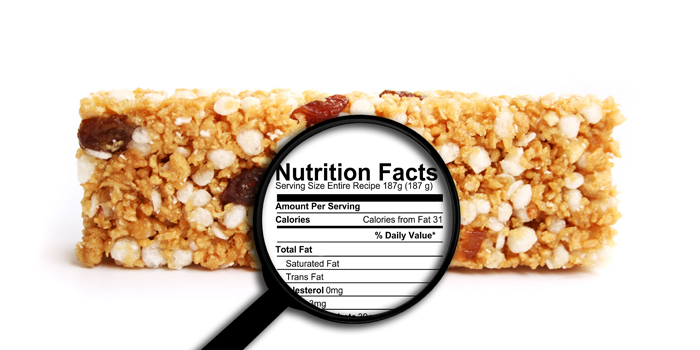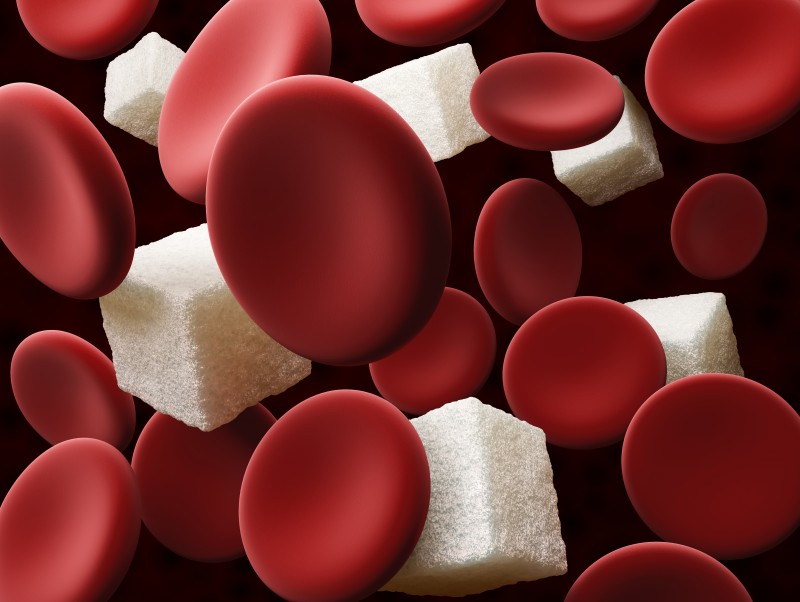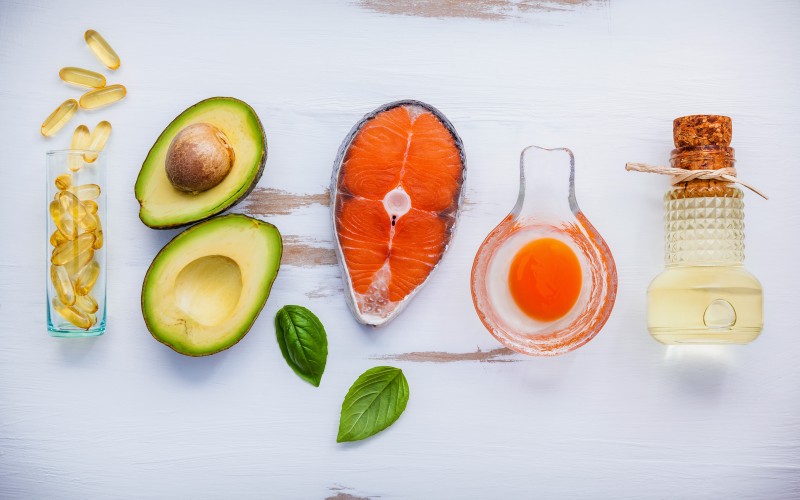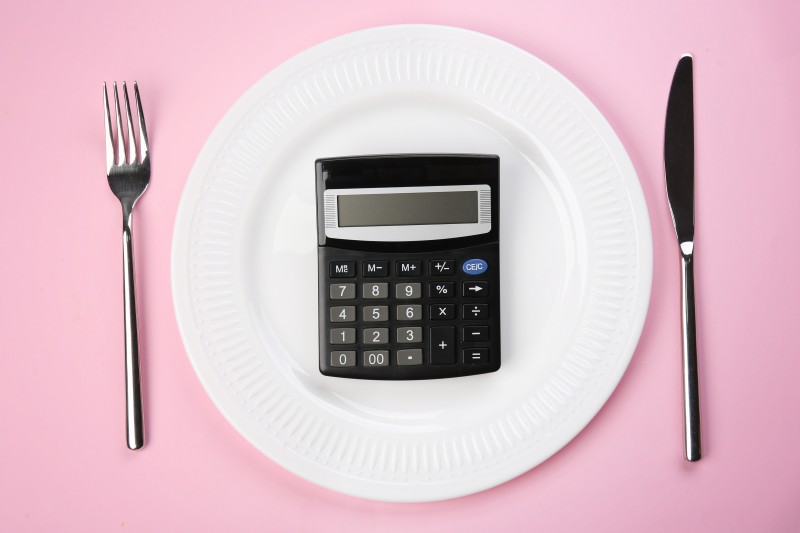
After wading through some online crap about nutrition and thinking in terms of chemistry instead of fancy names like “glycogen” and “glucose polymers” and “dextrose” and even “starch,” if you did a modicum of looking, you probably know that the above terms are remarkably similar. They refer to the same basic stuff in a few different forms. But the body will use all of them the exact same way. If you didn't look at it any closer for yourself, that’s too bad. I’m not going to do it for you in this article! Don’t let that shock you.
I’m a believer in teaching. But you must meet me halfway. Are you as committed to learning as I am to teaching? If so, you would have looked it up as I suggested at the end of my last article. If you are so lazy as not to have bothered, I really don’t think you’ll do any of the things I ever write about.
RECENT: Nutrition, Supplement, and Drug "Facts" Explained
I do not pander to the slothful. Isn't that one of the Seven Deadly Sins? Don’t be lazy! You'll never get anywhere in the strength game. Go back and look up the difference between simple and complex carbohydrates. Or don't. It's your success that is on the line here. Mine is over and done. Already in the books. It is you who has all the potential!
The next myth for you to consider is the scourge of sugar. Here is an important fact: the human brain uses about six grams of sugar (glucose) per hour. That’s 24 calories. It may not seem like a big deal, but it is the only thing the brain wants to use! Glucose is the brain's fuel. Let me remind you that the brain runs the show — muscles included. The muscles don’t do anything without a signal from the motor cortex to do so. If the brain is sloppy, the signal is, too. Coordination and contraction come from the brain. If you starve it, the muscle work suffers. Plain and simple.
The brain that is starved for glucose will first adopt a mechanism by which the body can use some protein to make glucose. This is called gluconeogenesis. Gluco means “sugar;” neo means “new;” and genesis means “to make.” So the term gluconeogenesis means “to make new glucose.” This is accomplished by transforming the branched-chain amino acids (leucine, isoleucine, and valine) into glucose.

Li Hong © 123rf.com
One point to remember here is that the brain must have glucose. If it is not in the diet, the body will make its own from protein that was originally doing another job — a protein job, like rebuilding muscle or even being part of a muscle.
Don't want to eat sugar? Fine. The body will just take some of your protein (and you have plenty of extra amounts in your big, beautiful muscles) and make it. The brain makes this happen without your approval. It demands glucose.
I will also mention here that the brain can run on the ketone bodies from the breakdown of fat. But this is only in extreme emergencies and for short periods. It happens during starvation, not normally. It is unhealthy, as it occurs in ketoacidosis, which is a disease. But rather than just roll over and die, the body gives this last-ditch effort.
Don't confuse what I’m saying as a reason to employ a ketogenic diet. I’m just covering my bases because I’m sure someone will want to argue that the brain does not need glucose and that it can use ketones. While true in theory, running your brain on ketones will severely limit its functionality. And if you are already not a sharp tool, you will become as keen as a sack of wet mice, and you can forget about optimal performance. That would be a joke.
If we are going to have a serious discussion about recovery and getting the most from our bodies and our workouts, then we must concentrate on the normal, regular function of metabolism and not cling to a shred of truth that occurs in starvation scenarios. Ketoacidosis is not associated with performance. It is a survival adaptation, and we should be glad we have it.
Since we want more than just to stay alive and are looking into our best and strongest possibilities, we will drop the keto argument and find ways to feed carbohydrates in the most useful form to our body: glucose. Just because you can use ketone bodies does not mean you should. In fact, you shouldn’t! Please don’t.
The big takeaway from the above is that sugar is not an enemy. The muscles prefer it for power activities, and the brain always prefers it. The reason it has such a bad rap due to American extremism. Sugar is not bad. Way, way too much sugar is bad — very bad. Americans do too much better than anyone. We have the highest numbers when it comes to obesity and diabetes of any country (although there is a place in Scotland or Wales that gives us a run, but it is a region, not a country) on the planet.
The athletic body and athletic endeavors (not to mention the athletic brain) require sugar — and lots of it. There are three basic fuels for athletic activity: fat, sugar, and phosphorylated creatine. Protein is not really a good choice although it too can be used as described above. Fat is for long, slow, low-intensity activities — the aerobic stuff. Distance running comes to mind first. Creatine only comes into play for very intense bursts that last about a couple of seconds or less. That leaves the vast majority of athletic endeavors to be fueled by carbohydrates.
If you did your research on the difference between starch and sugar, you already know that the truth is that starch never even enters the bloodstream. It’s all sugar. Everyone knows about blood sugar levels. There is no such thing as a blood starch level. It's not a thing.
Carbohydrates only travel in the blood as monosaccharides. No long chains. The chains are a storage form. The sugars are a usage form. When you exercise with weights you rely most heavily on the creatine system (known as the ATP-PC system), but it only lasts for a moment. The rest of the workout is fueled by carbs in the simplest form: monosaccharides in the form of glucose, mostly. There are some pentoses and hexoses other than glucose but they are few and we will stick to the term “glucose” to encapsulate them all.
Let that sink in: the body only uses sugar. Metabolism of the longer chains of carbs must first hydrolyze into simple sugar. We don’t use starch. We use sugar. We store starch. Nature works this way and no matter how you would like it to work, that’s the deal.

tussik13 © 123rf.com
So let's be clear as crystal. Sugar is good, not bad. Too much sugar is bad, just as too much of anything is bad. That’s the definition of too much. Too much water can intoxicate you or even kill you. Is water bad? No. Is too much water bad? Certainly. Put the modifier too much in front of anything good, and it turns bad.
Is oxygen bad? How about too much oxygen? Are kittens bad? How about too many kittens? Money isn't a bad thing at all... until you get too much. Then you have to constantly watch it, invest it, worry that someone is stealing it, and even wonder if your friends are really your friends or are just after some of your wealth. What a headache. You might not even trust your own wife or family. Read about the intrigue of the families of the Roman emperors. Too much!
The myth is that sugar is bad. There are different versions of this. Some insist that complex carbs are good, and simple sugars are not. But those of you who did a bit of research see through that, don’t you?
This point goes back to the irrefutable fact that we are omnivores. Nothing is bad for us, per se. What we have to do is figure out how much we need, and then supply it in the correct amounts. But to villainize sugar is a gross miscarriage of judgment. The truth is that we need to villainize our American propensity to overindulge.
I promise that at the end of this series of nutritional myth-busting articles, I will outline some macros for you. I will estimate the requirement for optimal athletic performance in terms of grams per day.
At about this time, I can imagine some of you reading along are bright red in the face and mad as hell at me. You are proponents of low carb dieting and cannot stomach what I've said. If I have upset your apple cart, don’t blame me. I was not consulted when the human body and metabolism were designed. I had nothing to do with it. I just learned how it works. Blame God or evolution or even science. But leave me out of it. I know, I know... There, there, cupcake. You feel differently! You believe carbs are evil. You know that low carbs are the answer to your strength training woes. Well, you can still live your life in the dark! You don’t have to listen to facts, science, or me! You can do your own thing! Nobody is stopping you from being as stupid and uninformed as you want to be. Go ahead! I’m certainly not going to stop you. This is America, goddammit! You can be as wrong as you choose to be. That’s using your freedom!
But before you tell me how you know that low-carb dieting works because you have had success with it (or much more likely, you know someone who has), let me burst that bubble right now. Remember I said this: Success is not proof of anything other than success. Many people are successful in spite of doing things wrong. Some people are successful because they did things wrong. My example is that of a businessman who makes a million dollars. A million-dollar business is a success. But that does not prove he is a good businessman. Perhaps he garnered his millions by cheating customers, by lying in his books, by stealing a product, and so forth. His success is a direct result of his not being a good businessman but by being a very bad businessman.
Contrast that with a man with an idea, a plan, and a work ethic to make the best product ever in his field. He, too, makes a million. If your only marker for being a good businessman is success, then you must maintain that they are equally good businessmen. But that doesn’t seem true, does it? That is because to argue the means by the ends leads to this misunderstanding. My point: just because someone is successful does not mean they are right.
You can argue with me about the pros and cons of low-carb diets, but you have to bring science and facts with you to do so. Don’t hand me anecdotal success stories, even if they are your own. I will simply argue that no matter how well you did or how successful you were, you could have done better if you had carbs! You can’t prove me wrong! Not with tales of glory. You’ll have to do it with science. If I'm wrong, science will show that. The converse is true.
- Myth: Sugar is bad.
- New maxim: sugar is an athlete’s best friend (even more so than protein).
Which brings us to the next myth that runs unchecked and rampant in strength and muscle-building circles: You need exorbitant amounts of protein each day.
You patently do not. It was easy to pardon back in the days before science. It could be excused that thinking that eating more muscle in the diet would cause more muscle on the body. But, of course, that is not how muscle is built. This is not a basic physiology class, so if you don’t know how muscle accrues, then you have some reading to do, don’t you? If it worked that way, then eating more bone meal would grow your bones. While the proteins in meat and the calcium in bone meal can be used to build those tissues, just ingesting more of them above and beyond a normal amount does not cause them to grow. They must be stimulated by other means than an overabundance of the constituents.

dolgachov © 123rf.com
Having forgiven the layman’s idea of just eating more meat to put meat on your frame as an uneducated guess, we then move to the concept of muscle breakdown. It is also an uneducated but reasonable guess that muscle builds up by the process of response to breaking it down. This works as a very, very rudimentary explanation but is far from the scientific theory of super-compensation. The muscle does respond to stress, just not to stress taken to the point of injury and destruction. No real breakdown.
It is more like an irritation that causes a callous than a breaking up of muscle tissue. But if you still have the idea that training breaks your muscle down, then, of course, it would follow that you must replace that lost tissue protein with protein in your diet if you are going to “build it back up.”
This, in fact, can be well tested for and reliably estimated by doing a nitrogen balance study. Nitrogen is a constituent of protein and the game is to measure how much the body loses each day. It is lost in sweat, feces, urine, and a few other avenues that are pretty small. But to do it right, one must don a suit that captures all that fluid as well as breath (skin, hair, and nails, too!). Nitrogen is a gas and can be exhaled. The studies are hard to do, and it's even harder to get subjects to exercise in the suits! But the military has lots of sway over lowly privates!
In any case, we have a good idea of how much protein you have to ingest to cover what you lose from these exhaustive studies. Then we can simply add a safety margin to that so as to account for growth (because that is the goal of all the heavy lifting). You can look up the values that are recommended. They range from a gram per kilogram (half a gram per pound roughly) up to a whopping two grams per pound. Take your pick, but I fall on the lower end. One gram per pound is an often-quoted value.
I won’t make your mind up for you, but I’ll give you a fact or two to ponder when you choose how much protein you will eat. First, the more carbohydrates you eat, the less protein you need. Carbs have what is known as a protein-sparing effect. What this means is that if you skimp on carbs, then some protein is diverted from doing protein jobs in the body and serves as gluconeogenic fodder. Remember the body’s ability to use branched-chain amino acids to make glucose? Well, if you eat plenty of sugar, then you don’t cut into protein to make it. That leaves (or spares) protein to keep doing protein jobs instead of carbohydrate jobs.
Some people can adapt to using protein for gluconeogenesis to a considerable amount over normal. This means they might need more protein. But if you employ a diet rich in carbohydrates, you may need less protein. When protein is spared from being diverted into carbs, you can adjust the number down.
Secondly, I must insist that I am not as jaded as it seems. It is simply a fact that sugar is cheap and protein is expensive. Companies have a vested interest in making you think that you need tons and tons of protein, and they want to be the ones to sell it to you. So please consider this when you hear that you need crazy amounts of protein. The nitrogen balance studies show that it is ill-absorbed or stored as fat. Not quite where you’d hoped an excess of protein would end up on your body, is it? Too much is... well, too much.
These myths may come as news to you because the general gym consensus is contradictory and it seems reasonable, too — that is if you don’t know science and human physiology. You don't need to omit sugar, and you don’t need to bloat yourself on protein shakes.
You would quite possibly not believe me if I told you how little protein I eat and have ever eaten. The truth is I don’t even keep count of it. Believe it or not, you need much less than you think. Protein is not a panacea.
Let that sink in.
This leaves the only other energy nutrient (fat) to deal with.
I have been through the high-carb/low-fat diet craze of the ‘90s. At our gym, we sold a pre-workout drink that had no stimulants (not even caffeine) but did have 100 grams of pure sugar in the form of glucose polymers. That’s 400 calories just as you walk in the door to train. This over-reliance on carbs was accompanied by a demonization of fats, any and all fats.

Seksak Kerdkanno © 123rf.com
I can see where this could seem reasonable if you did not have science to buoy you from the waters of ignorance. The thinking was easy to see: eat fat and get fat. Sort of like eat muscles and grow muscles from the protein discussion. But that is not how human metabolism works even if it was a good guess.
Again, it is too much fat that makes you fat or any other energy nutrient, for that matter. But since fat is over twice as calorically dense as both protein and carbohydrate, it is much easier to overindulge in and achieve that too much status.
Fats have nine calories per gram and protein and carbs just have four. So what that means is that one mouthful of fat has twice the calories as the same mouthful of protein or carb.
By limiting fat, theoretically, you should take in fewer calories. So companies went berserk making fat-free everything. Cookies and treat foods were rampant. Nabisco made a whole brand for fat-free products called “SnackWell’s.” Companies marketed together, and the boxes of fat-free stuff were all colored the same hue of green. Green meant fat-free.
Well, as any good American extremism ends up, this was a disaster for health. First, since the products were made fat-free, consumers erroneously believed they would be lower in calories. But they were not. Companies just added more sugar to substitute for the loss of flavor that removing fat caused. So people actually gained weight by overconsumption. “If it’s fat-free, then I can eat more!” And they did.
The second effect that we are still dealing with today was an epidemic rise in diabetes. This was the impetus that combined with the incredibly sedentary lifestyles of today have put our citizenry on a collision course for a short life. This is the first generation in the history of our country that is expected to have a shorter lifespan than their parents. Give that a moment in your consciousness. With all of today's wonders of medicine going for them, these kids are doing so badly at exercise and diet that it can't help them live longer. So much for insane zero fat/all carb and protein diets. But at least we had a fun stroll down memory lane.
Next was the high-fat diet. This made more sense because fat has the benefit of keeping satiety longer than carbs or protein. Eat some fat, and you don’t get hungry as soon. So if you watched your calories you could lose weight without feeling as hungry. But the problem with this was the brain’s need for glucose and the bind we get into with that as outlined above.
But, of course, if you throw American extremism into the mix, you get the reasoning that one can eat all the food they want as long as it’s zero carbs. Well, this just led to more weight gain from too much. In this scenario, too much was usually bacon, lots and lots of bacon.
The other problem with the high-fat foible was that it could work if you could keep your calories low and still think clearly enough to do your job, but the very moment you went back to anything resembling a normal diet, all the pounds you’d lost (which was often considerable and quite admirable) came screaming back and they brought their friends with them. After months of successfully adhering to a punishing high fat diet, the majority of folks gained it all back and then some in half the time. Another strike for diets that exclude one of the three macro energy nutrients.
So here we are, knowing that we should neither eat zero fat nor zero carb nor all fat nor all carb. We want a balance between the three energy nutrients. There are more friendly and less friendly fats, but that has been subject to opinion. I disregard it for a simple reason.
If you adopt the “eat what you burn, and burn what you eat,” it doesn’t seem to matter. Think of all the Midwestern farmers who eat eggs, bacon, whole milk, sausage, and butter every day. And that's just breakfast! But they work hard all day, and they burn it. They don’t have heart attacks. Their arteries aren’t clogged. They exercise a whole lot (they call it farming) and they eat without a second thought. They burn what they eat and they only eat what they can burn. Their weight is stable, and I'll put them up against most high school athletes in a test of total fitness any day, even if they are in their 70s.

serezniy © 123rf.com
I’m intimately aware of this phenomenon because I know a guy, my grandfather. He outworked me repeatedly in the garden when I was 16, and I was hitting the gym each day. It was a bit disheartening, but I’m thankful for the genes, Papa.
My point here, once again, is that although nutrition is very important, common sense about it goes a long fucking way. Consume a moderate amount of fat of any source, and if you burn it off, it can’t clog your arteries, and it can't make you fat. You burned it! So much for worrying about it.
This leaves us to determine how to proportion our three macro energy nutrients for optimal performance. I know some wiseacre out there is whining about keto adaptation (which is poorly studied at present and may not even be a thing) or Paleo diets (which consisted primarily of whatever was available which happened to be insects, bugs, and worms that proponents conveniently fail to mention) or whatever new nonsense craze is happening as we speak, but I'm going to rest my case on common sense and moderation and variety.
Please know that I am aware and have argued that the human body can withstand periods of time under radical restriction of one or the other macronutrients. But that is a survival mechanism, not an attempt to perform maximally. We want something more than just getting by or just getting away with it. Since we have incredible, unprecedented variety and options to access great food, we can do better than that.
Here's what you’ve been waiting for. The very first step in the process is to estimate as accurately as you can the number of total calories you need. If you are wishing to gain weight, you must eat more than you spend each day. If it is weight loss you aspire to, then fewer than you spend must be eaten. And to maintain, you eat the same as you spend.
Counting calories is an imperative step, otherwise, you are guessing. This is not as simple as it sounds. You must calculate your basal metabolic rate and to do so, you must have a reasonable knowledge of your lean body mass and body fat percentage. Then you must estimate your daily exertion rate in calories. How much do you exercise? How hard? How much do you move at your job? In general? At play? Any recreation or work or movement or exertion of any kind should be factored. The more you care about this the more effort you should put into it. You can go online for help. You can also go online for ways to estimate that are less accurate but less involved. That's up to you. But don’t complain when you struggle to get what you want. Do the work and get the best results.
Once you know your calorie target, you need to deploy your distribution of calories over the macronutrients. To do this, you need the following information. One gram of fat has nine calories. One gram of either carbohydrate or protein has four calories. Starting with the number of grams of protein, you have decided you need each day based on the factors of body size, metabolism, exercise amount and intensity (paying attention to recovery as pertains to this series), and an allotment for growth of new muscle tissue, multiply that number (in grams) by four.
Then subtract that from the total number of calories per day. As an example, if you estimate you will need 3,500 calories each day, and you wish to get 200 grams of protein, then you multiply 200 grams by four calories per gram to get 800. This is the number of calories that are yielded by protein. You subtract 800 from 3,500, and this leaves 2,700 calories left in your diet to further allot between fat and carbohydrate.

You must decide how much energy you will need in a quick and intense release and how much in a slow and steady release. It is your energy need that should be the main determinant of this. How much high- versus low-intensity effort do you employ every day? And that may even be too simplistic. How much is in-between somewhere? Medium-high or medium-low?
This can get confusing, I understand. Generally, the balance of training athletes would do well to get approximately 60 percent of their calories from carbohydrates. In our example, that would be 2,050 calories. If you want to know how many grams of carbs that is you just divide by four. This is 512 or so.
By subtracting 2,050 from 2,700, we get 650. This is the remaining amount of calories left to be eaten from fat. At nine calories per gram, we divide 650 by nine and get only 72 grams. This might be fine to allow good training, but it puts into question the recovery ability. This may be too little fat.
There are several solutions to consider. One is to increase the total calories and add more grams of fat. This will result in weight gain. If that is unwanted, another solution must ensue. Perhaps the number of carbs will have the protein-sparing effect, and we can decrease our amount of protein by two grams to every one gram of fat we wish to add.
If your research into protein requirement makes you feel uncomfortable with that, then the only other option is to trade out carbs for fat. This seems realistic and is potentially a good option for low-intensity training days. But for high output days, the carbs must stay fairly high to accommodate the demand. But also on those days, the need for fat during recovery is increased as well and potentially the need for more protein is also increased because you want to lay down more new tissue. What is the answer?!
What, indeed? I propose adopting a variable calorie and nutrient distribution for differing days of training and recovery needs. There is way too much science to cover to truly understand the nuances of this, but again, I will refer you to your common sense.
Remember: Carbs are for high-intensity, short-duration energy; fats for long, slow energy (like recovery during rest and sleep); and protein is best used not for energy but for building stuff and also for during recovery. Look at the energy and recovery needs for each day.
For example, eating some simple carbs a few hours before your workout seems to make common sense. But drowning in sugar before sleep when your need for high-intensity energy doesn't add up! Protein prior to a workout would do exactly what for you? Protein after?
So even without a biochemistry or physiology background, you can reason this game out. What I think might be less fruitful is a blanket diet from a cookie-cutter program online. Still, if you get close, even in the ballpark, you can do pretty well because of your human evolution.
So, I’m admitting that it can be complicated. But I’m also saying that it is not beyond you. You can do this. But you can’t do it without thinking long and hard. If you want easy answers to diet, you are out of luck. But don't complicate it any more than you have to. Focus on macro needs and distribution according to your energy and recovery habits. The harder you train, the more important this is. During lighter cycles or rest periods, it really isn't that important at all.
I know I haven't given exact formulations or suggestions. But the information you need is all right in front of you. You know more about your training and recovery than I do. How could you expect me to give a one-size-fits-all template that would work? That is not a thing. Quit getting them from the Internet and being disappointed. Do the thinking for yourself. Be your own dietician. It is not too hard. And it is your responsibility, anyway.
I'm asking you to think and I’m asking you to read. It’s grade school all over again. It wasn't too much to ask back then and it's not too much to ask now. Here is a little advice.
- Stay away from muscle and bodybuilding sites for information. They are rife with misinformation. Instead go to places like the Johns Hopkins Medical Center site, the Cleveland Clinic site, or other reputable places that don’t sell anything.
- Visit several sites. Look for consensus. If five out of six places agree on one thing, are you likely to believe them or the one lone outlier?
- Get past the first pages. The Internet is not a place of information exchange more so than it is a big advertisement and store to sell shit. All the first things are likely to be ads and not info.
- Use your common sense. Again, it's ultimately your decision. Don't go against your gut too often.
- Don't fall for testimonials and success stories. They may or may not be true or work for you even if they are. The basics never failed anyone.
- Attempt a good crack at real science. Peek in a textbook and see how much you can follow. It might be more than you think. Don't be intimidated. Any college nutrition text is superior to Internet info as a rule. Read, goddammit!
- Continue to educate yourself. It’s OK to make mistakes. Keep records and learn. Reading won’t hurt you. They are just words. But they are powerful if you know how to apply them.
This is where I leave you. No real specific diet outline but plenty of good advice about diet. One belief I have is that in very heavy training periods, it is better to be safe than sorry. I don't want to bust my balls in the gym and not get the full benefit from that single, individual workout.
I could try to estimate the exact number of protein grams, carb energy, and fat energy needed to do so. It is like walking a tightrope. But if I come in a bit under, I'll only get say 95 percent of the benefit I would have had if I’d gotten it dead on. But getting it dead on is really an art and a science, maybe even some luck. I can avoid all of that nonsense and be absolutely certain I got everything I need from my diet by simply overeating. That means getting a bit more calories and protein and carbs and fat than I really need. A buffer if you will. A safety net to make sure I get more rather than less than I need. This will lead to a slow body fat gain. But it ensures full recovery as far as nutrition is concerned.
My assertion is that I can (and did) lose the fat after I've gotten super big and strong. But if you don't have faith and confidence in your ability to diet the excess fat off, you need to tread lightly. If you've never cut weight before, you should hold off on the bulking up until you have successfully dropped at least 15 pounds of fat. Not weight, but body fat. Once you have convinced yourself you will be able to trim the flab, you can run your nutrition at a slightly higher than necessary level and be certain you are covered in all your needs.
Think for yourself, use common sense, and read up. People get way to tightly wound about dietary issues. One way to avoid a lot of stress is to overeat slightly in an attempt to provide a buffer against missing out on growth or recovery. But you must be able to under-eat when the time comes to lean up and clean up.
My final thoughts:
The six human nutrients are:
- Water
- Vitamins
- Minerals
- Proteins
- Fats
- Carbohydrates
To address each of the human nutrients in a pragmatic way, first, drink water ad libitum. Stay fully hydrated all the time. The easiest way to check is by the color of your urine. The clearer, it is the more fully hydrated you are. The darker, it is the less hydrated you are. Keep drinking a lot.
Next, cover the vitamins and minerals with a sensible supplement. Not a mega. Just a normal basic vitamin or mineral tablet. This is quite possibly unnecessary if you eat a balanced diet. But if you are prone to worry about such things, try a children's chewable taken three times a day. Most kids' vitamins are around 33 percent of an adult RDA, so three taken spread over a day would do the trick.
This only leaves proteins, fats, and carbohydrates to deal with. You can decide for yourself what your particular needs are, then choose an allotment that satisfies that. The most balanced approach would be one-third for each. But that may be too high in protein and too low in carb. Or maybe not. That will be your decision. An active, intense training need for carbs is around 60 percent. The protein is dependent upon protein loss and the expectation of laying down new tissue. If carbs are high, the protein-sparing effect would probably make a gram per pound of bodyweight more than enough, and the remainder of daily calories would come from fat. The fat may be adjusted upward if the energy demand for low intensity, long duration output increases. A schedule that is flexible depending on training effort and intensity is a process that is well worth figuring out with the number of macronutrients varying each day.
Your overall marker of whether you are adequately supplying your body with proper nutrition for recovery is this: are you making satisfactory progress or not? In the end, you are not doing this to stay the same nor creep toward your goal. Is the progress you are achieving coming at a reasonable rate or not? If it is not, you may have concern to modify your diet. Use this rubric to evaluate the need to rethink your diet or to plug on through as it is.
I hope you will find some of these ideas timely and useful. It is always a risk to write about diet because of the passion with which people hold their beliefs as well as the amount of sheer misinformation that is out there. I tried to walk a fine line and yet still stand for the principles that are in play in biology and physiology. This was not a very sexy article. It might even upset some people. Take what you want, leave the rest. If I did nothing more than get you to rethink your norms. then that is a win for me.
Keep two things in mind if all of this was confusing. First, humans are omnivorous and the finely tuned diets that the obfuscators that sell you shit propose are not necessary. It isn’t that hard! Second, although I admonish you to do some education and thinking about your diet, you in no way need to be an expert! Your common sense and a small dose of education at the basic level will get you home.
Hey, if you make it to some elite level, you can always learn more about it and run as fine a line as you want to with it. In fact, the higher I climbed, I did exactly that. But for the great majority of your journey to the top, the basics and common sense are all you’ll need. Don’t get too anxious about it all. Just take it appropriately and seriously.
Remember, I have nothing to sell you. If you disagree, it’s no skin off my back. I don't have a dog in that fight. But you do! Before you throw out any ideas that I’ve proposed, think them through... twice! You can always toss them out. But if you can use just a bit of even one, you are a step ahead of where you were.











3 Comments